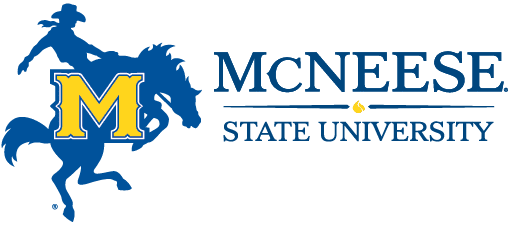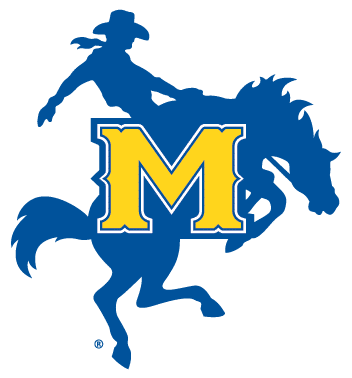Medical Laboratory Science Bachelor’s Degree Program Highlights
The Medical Laboratory Science (MLS) program prepares students for a rewarding career in a high-demand medical setting with limited patient contact.
MLS professionals conduct laboratory tests on biological specimens, directly impacting every single patient who is diagnosed and treated.
MLS graduates benefit from 100% job placement locally or across the nation within six months of graduation.
Laboratory Professionals Get Results!
At a Glance
Degree Type: Bachelor of Science (B.S.)
Program Length: 4 years (120 credit hours)
Availability: in person
What Can You Do With a Medical Laboratory Science Degree?
Graduates can work as a Medical Laboratory Scientist (previously referred to as clinical laboratory scientist and medical technologist) in a variety of healthcare settings. As a Medical Laboratory Scientist (MLS) your duties include examining and analyzing biological specimens, utilizing complex equipment for analyses, screening blood for transfusion medicine, and determining the causative agent of infection. A medical lab has many departments within including transfusion medicine, hematology, coagulation, urinalysis, parasitology, microbiology, clinical chemistry, molecular diagnostics, and immunology. The median annual wage for Medical Laboratory Scientist was over $60,000 per year as of 2023, according to the U.S. Bureau of Labor Statistics.
Graduate Programs
- Master of Medical Laboratory Science
- Master of Science in Histotechnology
- Master of Science in Physician Assistant Studies
- Master of Public Health
- Doctor of Clinical Laboratory Sciences
Career Paths
- Hospital or Reference Laboratory
- Pharmaceutical Research Laboratory
- Transplant Services
- Sanitarian (Health Inspector)
- Forensic Laboratory
- Laboratory Instrumentation Representative
- Industry
Career Outlook
Nationwide, the field of Medical Laboratory Science is projected to have a 5% employment increase annually, according to the U.S. Bureau of Labor Statistics.
Professional Certification
In recent years, 90% of graduates have passed a national certification exam within 12 months of graduating to earn their credential as a medical laboratory professional.
Job Placement
100% Job placement within 6 months of graduation.
Additional Details on the Medical Laboratory Science Bachelor’s Degree Program
McNeese State University’s Medical Laboratory Science Program is nationally accredited by the National Accrediting Agency for Clinical Laboratory Sciences (NAACLS). The program currently holds the highest accreditation award available from NAACLS, 5600 North River Road, Suite 720, Rosemont, IL 60018-5156 (773-714-8880), https://www.naacls.org/ .
NAACLS Accreditation
Upon successful completion of the program, students are eligible for a Bachelor of Science in Medical Laboratory Science. Graduates are then eligible to take one of the national certification exams and apply for a state license. The granting of a Bachelor of Science degree is not contingent upon passing a national exam or applying for a state license.
| Program Outcomes | 3 Year Average | 2024 | 2023 | 2022 |
|---|---|---|---|---|
| McNeese Certification Pass Rate within 12 months of graduation1 | 89% | 85% | 82% | 100% |
| National Certification Pass Rate within 12 months of graduation2 | 68% | 67% | 67% | 69% |
| McNeese Graduation Rate (Attrition Rate)3 | 95% (5% Attrition) | 100% (0% Attrition) | 100% (0% Attrition) | 85% (15% Attrition) |
| McNeese Placement Rate (employment within 6 months of graduation)4 | 100% | 100% | 100% | 100% |
| McNeese Graduates Per Year | 14 | 13 | 18 | 11 |
Table Notes:
- McNeese graduates passing the ASCP or AMT certification exams within 12 months of graduation
- National pass rate for the ASCP and AMT certification exams (averaged)
- McNeese graduates successfully completing the final half (clinical) phase of program
- McNeese graduates employed by a medical laboratory within 6 months of graduating
McNeese’s Clinical Sites
Acadia Laboratory, Crowley, LA
Baptist Hospitals of SE Texas, Beaumont, TX
Beauregard Health Systems, DeRidder, LA
CHRISTUS Ochsner Health SW Louisiana, Lake Charles, LA
DeQuincy Memorial Hospital, DeQuincy, LA
Ochsner American Legion Hospital, Jennings, LA
Ochsner Lafayette General Health System, Lafayette, LA
Our Lady of Lourdes Regional Medical Center, Lafayette, LA
The Pathology Laboratory, Lake Charles, LA
West Calcasieu Cameron Hospital, Sulphur, LA
Independent Clinical Sites
Lake Charles Memorial Health System, Lake Charles, LA
Rapides Regional Medical Center, Alexandria, LA
Programs Related to the Bachelor’s in Medical Laboratory Science
Program Contact
Dr. Sonya Hidalgo
shidalgo1@mcneese.edu

